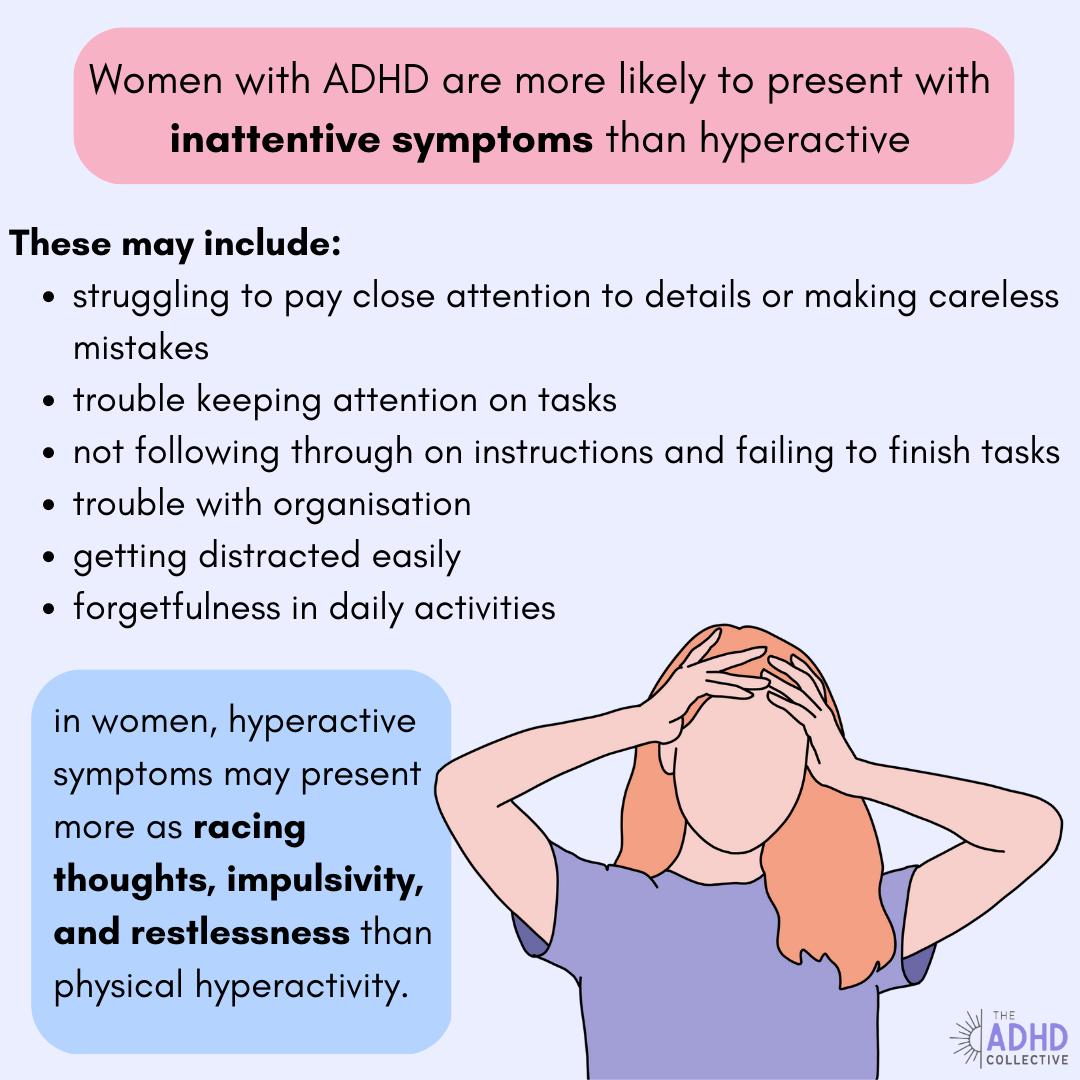Most people have very little idea of the huge and dangerous impacts that #ADHD can have on women and girls.
A thread 1/9
#ADHDWomen #IWD2023 #InternationalWomensDay2023 #InternationalWomensDay #WomensDay #WomensDay2023
A thread 1/9
#ADHDWomen #IWD2023 #InternationalWomensDay2023 #InternationalWomensDay #WomensDay #WomensDay2023

It is now clear from diagnoses in later life that #ADHD occurs just as often in women and girls as it does in men and boys.
But women and girls are diagnosed FAR less often, and frequently misdiagnosed 2/9
But women and girls are diagnosed FAR less often, and frequently misdiagnosed 2/9

Women with ADHD are more likely to present outwardly with inattentive traits, because hyperactive/impulsive traits are more likely to be masked and 'internalised'. 3/9 

Hormonal changes in women at puberty, during pregnancy, before a period and at peri-menopause / menopause may massively increase ADHD symptoms.
Menopause can be especially challenging, but combining #HRT with meds can help alleviate symptoms. 4/9
Menopause can be especially challenging, but combining #HRT with meds can help alleviate symptoms. 4/9

PMS is often far more debilitating for women with ADHD, and is often so severe many women may also be diagnosed with #PMDD.
Medication for ADHD may need to be adjusted throughout the cycle. 5/9
Medication for ADHD may need to be adjusted throughout the cycle. 5/9

Gender role expectations on women in society to carry more of the 'organisational' and 'emotional' loads lead to huge overwhelm and burnout.
Masking symptoms due to shame adds to the load and can have serious consequences. 6/9
Masking symptoms due to shame adds to the load and can have serious consequences. 6/9

The impact on women with ADHD (particularly if they are undiagnosed and untreated) is far greater.
Nearly 1 in 4 women with #ADHD has ATTEMPTED suicide. 7/9
#SuicidePrevention
Nearly 1 in 4 women with #ADHD has ATTEMPTED suicide. 7/9
#SuicidePrevention

More awareness of the presentation and impacts of #ADHD in women and girls is the first step to reducing the huge risks of harm.
With treatment, support and understanding - women and girls with ADHD can thrive! 8/9
#IWD2023 #WomensDay #InternationalWomensDay2023 #adhdtwitter
With treatment, support and understanding - women and girls with ADHD can thrive! 8/9
#IWD2023 #WomensDay #InternationalWomensDay2023 #adhdtwitter

I founded our #SocEnt @TheADHDCo.
We support #ADHDAdults through group coaching, webinars, meet-ups, 24/7 support, accountability, on-demand resources and tools.
I was diagnosed with #ADHD in 2017 aged 44 after a suicidal crisis. 9/9
theadhdcollective.org
We support #ADHDAdults through group coaching, webinars, meet-ups, 24/7 support, accountability, on-demand resources and tools.
I was diagnosed with #ADHD in 2017 aged 44 after a suicidal crisis. 9/9
theadhdcollective.org

• • •
Missing some Tweet in this thread? You can try to
force a refresh







